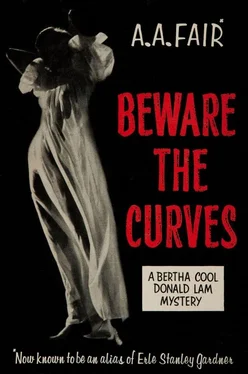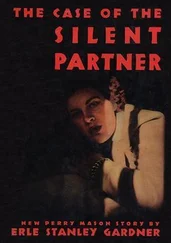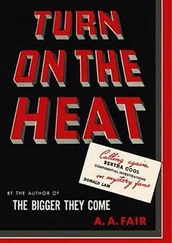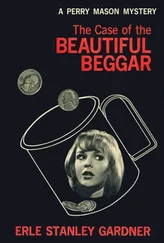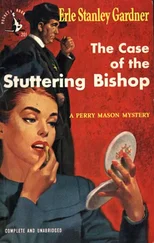I took the telephone directory from Bertha’s desk. “The first thing you want is a lawyer,” I said, “and you want him fast.”
She said, “I have already thought of that. There are two outstanding lawyers in Los Angeles whose names command respect. I’ll—”
“Forget it!” I told her. “The case is going to be tried in Orange County. You want someone in Santa Ana. You also want someone who will listen to reason.”
“What do you mean, listen to reason?” she asked.
“Listen to me,” I said and reached for the telephone, dialed long distance and said, “Operator, this is an emergency call. I want to talk with Barnard Quinn, a lawyer at Santa Ana, California. His residence number is Sycamore 3-9865. Just start ringing and keep ringing until you get an answer.”
It was just breaking daylight as we parked our cars in the deserted street in front of the building where Barney Quinn had his offices.
Quinn was waiting for us.
He was a stockily built chap who had had a reasonable amount of experience. He had been in law school with me.
We explained the circumstances to him. He was, of course, familiar with all of the general facts concerning the murder of Karl Carver Endicott. It had been a big murder mystery in its day and the local papers had played it up for all it was worth.
“They didn’t try to hold you?” he asked Mrs. Endicott.
She shook her head.
“They’ll come back after you as a material witness,” he said. “The district attorney will be very fatherly and very nice. He will explain that undoubtedly you were taken in, that if you’ll make a complete statement to him there won’t be any trouble, but he’s going to have to call you as a witness and all of that sort of stuff.”
“What do I do?” she asked, her lips clamped in a thin line of angry determination.
“Tell him to go to hell,” Quinn said. “Not in those words of course, but in words having that same general meaning, only more advantageous to the defense. Tell him that he simply doesn’t know John Dittmar Ansel, that there has been a horrible mistake, that Ansel wouldn’t hurt a fly, that you have never been satisfied with the investigative work that was done in the case, that your husband’s murderer is reading the newspapers right now and laughing at the manner in which the police are busily engaged in trying to work up a case against the wrong man.
“Make it dramatic! Pour it on! Let the words come spouting forth with feeling! Put on an act. Then take refuge in tears and refuse to make any further statements. You have said all there is to say, and that’s all you’re going to say.
“When they ask you if you refuse to be of any help in the case, if you refuse to co-operate, become indignant and tell them, ‘Certainly not!’ that you will give them all the co-operation they want, that you will make all the statements they want, but from that point on your statements are to be made in the office of Barnard Quinn who is attorney for John D. Ansel.
“Think you can do that?”
“Of course I can do it.”
“And you will?”
“You can count on me.”
“All right,” Quinn said. “Now I’m going to try and see Ansel. Do you know if he waived extradition, Mrs. Endicott?”
“I don’t know a thing about what happened. They took him into custody. I tried to talk with him and they wouldn’t let me. It was in the wedding chapel. They rushed him out and loaded him into a car and went away from there as though they were going to a fire. They evidently had men covering both Las Vegas and Yuma. The minute we took out a license we were marked for the slaughter.”
Quinn said, “If they didn’t get him to waive extradition, we’ll fight extradition. We’ll fight all along the way. If he did waive extradition, I’ll get in touch with him just as soon as they book him here in the county jail.”
Quinn turned to me. “Lam,” he said, “you’ve been of inestimable help on a couple of cases I’ve handled. We want your co-operation in this.”
“You’re going to have it,” Bertha Cool said.
Quinn said to Mrs. Endicott, “It is essential that I have the right kind of assistance in getting the facts. I want you to make arrangements with these detectives to—”
“Arrangements have already been made,” Bertha interrupted with firm finality. “You don’t need to go into that, Mr. Quinn. You can count on our co-operation and assistance.”
Quinn thought that over, looked into Bertha Cool’s cold, pale eyes, pursed his lips, played with a pencil for a minute, then said to Mrs. Endicott, “I’m going to want a retainer.”
“How much?” she asked.
“This isn’t going to be a cheap case.”
“I didn’t ask you to make it a cheap case.”
“Twenty thousand dollars,” he said.
She opened her purse and took out a checkbook.
“The man who was responsible for all this,” she said, “is Cooper Hale.”
Quinn held up his hand. “Don’t mention any names. All that you know is that John Ansel is innocent. You leave the rest to me.”
“Very well,” she said.
Quinn looked at me. “And I’ll depend on you folks to get the facts.”
Whenever a client was making out a check Bertha considered the moment sacred. The slightest sound, the intrusion of a comment might be an interruption.
Bertha sat there, holding her breath, while Mrs. Endicott’s pen moved over the tinted oblong of paper. When the check had been signed, Bertha let out the breath she had been holding during the operation. She watched the passage of the check from Mrs. Endicott’s hand to Barney Quinn’s hand. Then she inhaled a deep breath.
“When do we eat?” she asked.
The morning newspapers had headlines: “MURDER SUSPECT ENTERS POLICE TRAP.”
There was quite a story. The six-year-old murder mystery of Karl Carver Endicott, a multimillionaire, who had extensive oil interests throughout the country as well as a substantial acreage in citrus lands, and had been mysteriously slain in his home, was on the point of being solved, according to police.
Police had long had a good description of the killer. A man who at that time was driving a taxicab, but who had since become prosperous through real estate and other investments, had furnished a most detailed description of the last man who had seen Endicott alive.
Police had long acted on the theory that the killer, whoever he might have been, had been actuated by romantic motives. They also knew that the fatal weakness of their case was that Drude Nickerson, the former taxi driver, was the only person who could furnish eyewitness identification.
Therefore, as a last desperate resort, police baited a trap with the co-operation of the press.
When an unidentified hitchhiker had been killed near Susanville, police had arranged for Drude Nickerson to keep out of circulation for a few days. They had made a tentative identification of the body of the traffic victim as that of Drude Nickerson and, thanks to co-operation on the part of the press, had lulled the suspect into a false sense of security.
Having kept under cover for years, John Dittmar Ansel, who was himself supposed to have perished in the Amazon years before, had come into the open. Almost within a matter of hours of the announcement that police were closing their files in the Endicott murder case because of the death of the only witness who could make an identification, John Dittmar Ansel and Elizabeth Endicott, the wealthy widow of Karl Carver Endicott, had appeared in Yuma, Arizona, had taken out a marriage license and were on the point of becoming man and wife when police, who had been waiting in the wings, so to speak, had swooped down upon the pair, whisking Ansel off to jail.
Читать дальше
